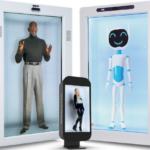Imagine a manufacturing floor where every worker performs at their peak, seamlessly adapting to new technologies and processes–a factory where staff efficiency continually improves, driven by personalized learning and real-time support. This isn’t a distant dream — it’s the reality that Manufacturing 4.0 and artificial intelligence (AI) offer. As the manufacturing sector faces unprecedented challenges in workforce development, AI-powered connected worker tools are now a game-changer for talent assessment, optimization and upskilling. From predictive insights to skills delivery and personalized training, AI-driven connected worker platforms revolutionize how companies approach their most valuable asset: their people.
The Current State of Manufacturing Talent
The manufacturing industry faces a severe talent crisis that threatens its future. A perfect storm of challenges, including an aging workforce, rapid technological advancements and younger generations’ reluctance to pursue manufacturing careers, has created a critical skilled labor gap. A recent Ernst & Young report highlights that adaptive, digital, technical and process-related competencies are not just beneficial — they’re essential for survival in Manufacturing 4.0.
The numbers are alarming, by 2030, the manufacturing skills gap in the U.S. could leave as many as 2.1 million jobs unfilled. This shortfall poses an imminent threat to the industry, limiting growth potential and creating downstream disruptions throughout supply chains. Companies are struggling to keep up with increasing demand without skilled workers to operate complex production lines in smart factories.
Understanding Industry 4.0
Industry 4.0 represents the digital transformation of manufacturing, delivering real-time decision making, enhanced productivity, flexibility and agility. It revolutionizes the way companies manufacture, improve and distribute their products. This transformation is driven by the integration of several key technologies, such as connected worker technology. Connected worker technology is integral to the success of Industry 4.0, linking not only the advanced sensors permeating smart factories but front-line personnel, as well. Collecting vast amounts of data via machines, wearables and other mobile technology from the production floor.
This data is then processed and analyzed in real-time through cloud computing and analytics, providing unprecedented visibility into operations. AI and Machine Learning (ML) play a crucial role, enabling predictive maintenance, self-optimization of processes and automated decision-making. Advanced Generative AI copilot solutions can work alongside human workers, augmenting their abilities and acting as a digital coach or mentor to frontline workers. Together, digital technologies lead to increased worker autonomy, improved uptime, self-optimization of process improvements, and, above all, a new level of efficiency and responsiveness to customers that were not previously possible.
AI: The Catalyst for Workforce Transformation
AI is a powerful tool for solving talent challenges. AI-driven connected worker platforms analyze vast amounts of data and provide insights previously thought unattainable or that required significant time and effort to uncover. In the context of Manufacturing 4.0, AI offers several key advantages:
- Objective skill assessment: AI-powered connected worker tools can assess skills and performance without the unconscious biases that often affect human judgments. This objectivity leads to fairer evaluations and more equitable talent development opportunities.
- Continuous performance monitoring: Unlike traditional annual or semi-annual reviews, AI can provide continuous assessment, allowing for timely interventions and personalized development plans within the flow of work on the manufacturing floor.
- Predictive analytics: By analyzing patterns in data, AI can predict future performance and identify potential skills gaps before they become critical issues. This foresight can allow manufacturers to proactively address workforce needs and stay ahead of industry trends.
- Personalized learning paths: AI-powered learning solutions create individualized learning and development plans for each worker, which would be prohibitively time-consuming if done manually. This personalization ensures that each employee receives targeted support to enhance their specific strengths and address their unique challenges.
- Optimized onboarding: AI-based connected worker platforms can help new hires get up to speed more quickly and reduce time-to-competency by identifying their strengths and weaknesses and tailoring the onboarding process accordingly.
- Holistic talent insights: AI software can integrate data from various sources — performance metrics, training completion, peer feedback, and more — to provide a comprehensive view of each worker’s capabilities and potential.
The Future of AI-Driven Workforce Development in Manufacturing 4.0
As we look to the future, the role of AI in talent assessment and development is set to grow, fundamentally shifting how we approach workforce management in the era of smart factories.
We can expect more sophisticated AI models that not only predict future skill requirements based on market trends and technological developments but also create a more holistic approach to talent management. These AI insights will inform training and development, recruitment strategies, succession planning and even process design in smart factories, allowing companies to proactively prepare their workforce for upcoming changes in the manufacturing landscape.
AI-driven workforce development is not just a trend in Manufacturing 4.0; it’s a powerful tool for developing and supporting a more skilled, engaged and adaptable workforce. As the manufacturing industry continues to evolve, those who leverage AI to upskill their workforce will be best positioned to thrive. They will not only bridge the current skills gap but also foster a culture of continuous learning and innovation — essential elements for success in Manufacturing 4.0 and beyond.
The future of manufacturing belongs to those who can successfully harness the power of AI to unleash the full potential of their workforce. By embracing these technologies, manufacturing companies will drive productivity, innovation, and competitiveness to new heights. In the age of smart factories, the integration of AI in workforce development isn’t just an option — it’s a necessity for those aiming to lead in the fourth industrial revolution. Personalization ensures that each employee receives targeted support to enhance their specific strengths and address their unique challenges.
Quelle:


